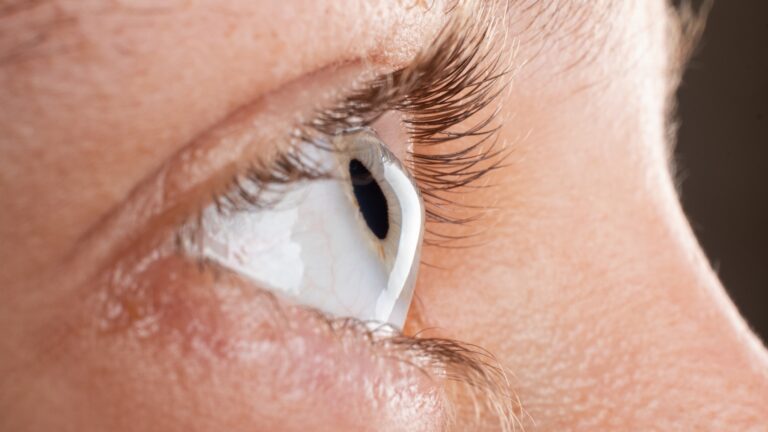For keratoconus patients, seriously impaired vision can get in the way of living a normal, active life. That’s why dedicated eye doctors at Florida Eye Specialists like Dr. Ravi Patel are committed to bringing the latest advanced keratoconus treatments to Jacksonville-area patients.
Florida Eye Specialists was the first in the region to offer a groundbreaking treatment method known as Corneal Collagen Crosslinking, specifically designed for patients with abnormally shaped or thinning cornea, like with keratoconus. Our team has just welcomed a state-of-the-art new device for Crosslinking, and according to Dr. Patel, it promises to benefit countless patients.
What Is Keratoconus?
Keratoconus (ker-uh-toe-KOH-nus) occurs when your cornea — the clear, dome-shaped front surface of your eye — thins and gradually bulges outward into a cone shape. It causes blurred vision, can lead to severe vision loss, and may cause sensitivity to light and glare. The disease tends to progress during adolescence and into the mid-20s and 30s.
Age isn’t always a factor, however. One of Dr. Patel’s patients, Jessie Browning, was diagnosed with early-stage keratoconus at age 37. Jessie’s eye doctor diagnosed the condition during his regular annual eye exam. He had been experiencing increased difficulty with night driving, seeing halos around taillights and stoplights.
“I thought it was my astigmatism getting worse,” he said. “But my glasses prescription kept changing drastically every year. Eventually, I felt like I couldn’t drive safely at night.”
Can Keratoconus Be Cured?
Keratoconus cannot be cured or reversed. If untreated, the condition can progress and become so severe that a corneal transplant is needed to restore sight. Regular eye exams and screenings are crucial for the best treatment outcomes.
Jessie was grateful his condition was caught early enough to avoid transplant surgery. He met with Dr. Patel to discuss Corneal Crosslinking, which stops the progression of keratoconus using UV light. Once the progression of keratoconus is stopped, patients can manage symptoms by wearing specialty contact lenses.
“You only get one set of eyes,” Jessie said. “There’s only a short window you can have the Crosslinking procedure done, and I’m so glad I did it. Now we can correct my vision from here.”
Benefits of Keratoconus Cross-Linking
With keratoconus, the cornea can become weak, thin, and irregularly shaped. The Corneal Crosslinking procedure adds stable cross-links to the cornea using UV light and a photosensitizer (riboflavin), preventing the cone shape from progressing. This ultimately stops the thinning process of the cornea. Most importantly, it stops the additional loss of vision.
“Our eye surgeons at Florida Eye Specialists have performed this procedure on thousands of eyes,” said Dr. Patel. “Now we have the latest, FDA-approved device, which has revolutionized keratoconus treatment for our patients.”
Dr. Patel explained the latest generation device for Corneal Crosslinking is much more efficient and accurate. Plus, it is approved by the FDA, which makes the procedure reimbursable by insurance. Cost-wise, that’s a huge benefit for patients.
According to Dr. Patel, here are all the benefits of keratoconus Crosslinking:
- Stops the progression of the disease, allowing patients to maintain vision
- It prevents the need for more invasive treatments like cornea transplant
- FDA approved
- Permanent procedure
- No need for hospital admission
- It’s a single one-hour treatment
- Quick recovery with short follow-up
- No injections or stitches
- No major precautions
Schedule a Keratoconus Consultation With Florida Eye Specialists
Florida Eye Specialists offers the latest technology for diagnosing and treating corneal disease. Our experienced corneal specialists have performed thousands of Corneal Crosslinking procedures for patients across the region, so you know you’ll be in good hands. Schedule an appointment today.

